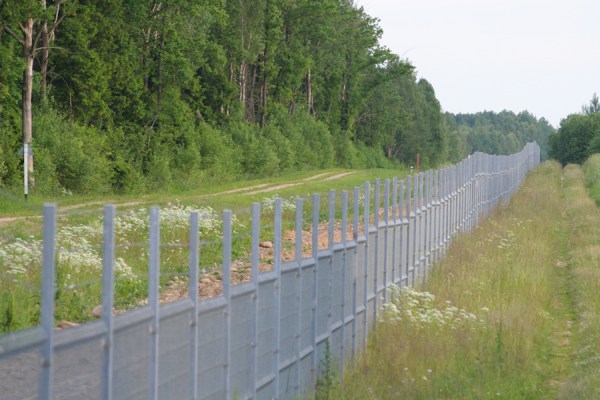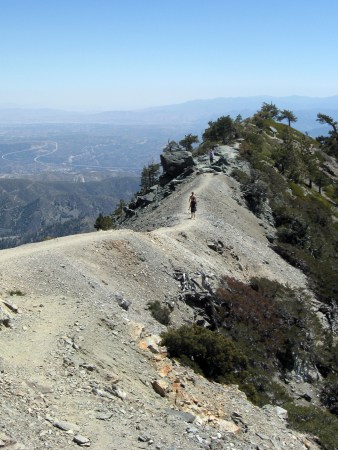On a run, I wondered what I would share for my check-in that afternoon at the peer supervision group I attend with other spiritual directors. Typically when we check in, we don’t just share what’s at the surface of our lives, but what’s going on in our souls. What is said is often tender and held with deep gratitude.
At first, I couldn’t think of anything to say because I feel like I haven’t landed anywhere. I’m in an in between place, so that’s what I decided to share.
I talked about being borderline on the autism spectrum, that I kind of have it and kind of don’t.
“I noticed I got anxious when I read Katherine May’s book in which she discovers she has ASD. I was nervous of finding myself like her and nervous of finding I wasn’t.” I paraphrased this quote by May.
Perhaps I am hoping to excuse myself. Perhaps I’m hoping that people will love me a tiny bit more for knowing that I can’t help it, that I’ll never be able to access the easy patience that I see in everyone else. Perhaps I’m hoping for a better life story, a coherent, tidy narrative arc that finally draws my scattergun life together into a kind of sense. I sometimes feel as though I’m asking for a privilege, to be allowed to say that I’ve watched my friends sail past me into competent adulthood, while I’ve stuttered and stalled, but that it’s not my fault. it’s beguiling to think that I could shake it all off that easily.
I notice, now as I write, that this quote makes me anxious. It names my desire for an excuse or explanation as to why I’m not like other people, but I doubt many people would see how I’ve “stuttered and stalled.” Then I think, don’t we all stutter and stall? And then I want to cry.
I slow down and listen to my gathering tears. There is something in me that wants to be heard and seen. I’m not neurotypical, yet I don’t have seven out of the ten top traits of autism. I’m on the borderline between two worlds, and I don’t live in either.
The day after my peer supervision group, I brought my in-between feelings to a focusing session, I pictured myself on a steep ridge. I could see open landscapes to my left and to my right. I listened to my desire to get off the ridge on one side or the other and rest there. I felt the futility of knowing neither side had rest for me. A lump formed in my throat. As I stayed present to it, I felt invited to sit down and find comfort in that narrow, in-between space.
As I felt myself relax there, I began to feel hope. I remembered something that happened in peer supervision. This month, it was my turn to bring a situation I was dissatisfied with during a spiritual direction session. I told them I was angry for a directee who was stuck in internalized shame she picked up from how she’d been treated by others. I felt frustrated that my anger robbed me of my ability to feel compassion and be present with her where she was.
One of my peers gently offered that those on the autism spectrum can find it difficult to hold two strong feelings at a time. Perhaps that’s why my feeling of compassion was blocked. I sat with that for a moment and sensed Jesus’ compassion for me. I heard, “That was so hard for you. It was all you could do, and you wanted to do more.”
Here was Jesus offering me what May articulated in that quote: It’s not your fault. I felt my shoulders soften as warm acceptance enfolded me.
Now that I know about this tendency in myself, I can notice a strong feeling and wonder what other feelings might want to be heard. Allowing them a voice, enables me to make choices without being dominated by one strong emotion.
Naming what is true about me (for now, anyway) relieves the tension of having to be what I’m not. So what am I?
What it’s like for me to be between neurotypical and autistic? I named a few traits that I noticed last year. Here is what I’m noticing now.
- I need a heads-up and time to adapt to some changes. An unexpected change can turn certainty into chaos. I suddenly feel unsafe and don’t know what I can count on.
- I need things spelled out for me. I often feel like I didn’t get the memo about what’s expected in a certain situation.
- I need a lot of down time. Being in groups of people for any length of time overstimulates me emotionally. I don’t get overstimulated by a lot of noise or bright lights but by all the verbal and nonverbal messages I’ve picked up. I manage okay in the moment but afterward, I feel anxious and overwhelmed. I ruminate over what I heard and saw, trying to understand what confused me. I have to pick off the burrs of judgment that tell me I’ve done something wrong.
- I need you to not take it personally when I have a meltdown, but I also need you to hear what made me meltdown. It doesn’t happen often, and I’m not as loud and dramatic, as Dr. Shaun Murphy in The Good Doctor, escalating, fists clenched, “No. No! NO!!!” But I can relate to him. I can see what he wishes he could calmly ask for.
- I need to wonder. I tend to feel one strong feeling at a time. Experiencing anger, elation, compassion, hurt, or any other feeling by itself has led me to make a decision I later regret. I need to wonder. What else might I be feeling?
- Above all, I need self-compassion. It’s hard to accept the limitations I have that many others don’t. So I can be gentle with myself and give myself the understanding, space, and rest I need.
Autism, by definition, is on a spectrum. We may not all have ASD, but I wonder if we all have HSD: Human Spectrum Disorder. We all have limitations being who we are. What would you list as your top six needs to be who you are?
Do not run or fly away in order to become free.
Rather go deep into the narrow space given you.
There you will find God and all things.
–Gustave Thibon
∗ ∗ ∗
I cannot overemphasize the importance of offering ourselves compassion. We can be so hard on ourselves. Kristin Neff helps us understand why we need self-compassion and what it can do for us.
What love mischief are you and God doing for the world?
Let me know and I will include it in an upcoming post.




Sending love to you, Esther! I look forward to a visit eventually, when the border opens.
LikeLiked by 1 person
Yes. I was thinking the same thing. Sending love to you too.
LikeLike
Pingback: Being the Odd One Out | An Everyday Pilgrim